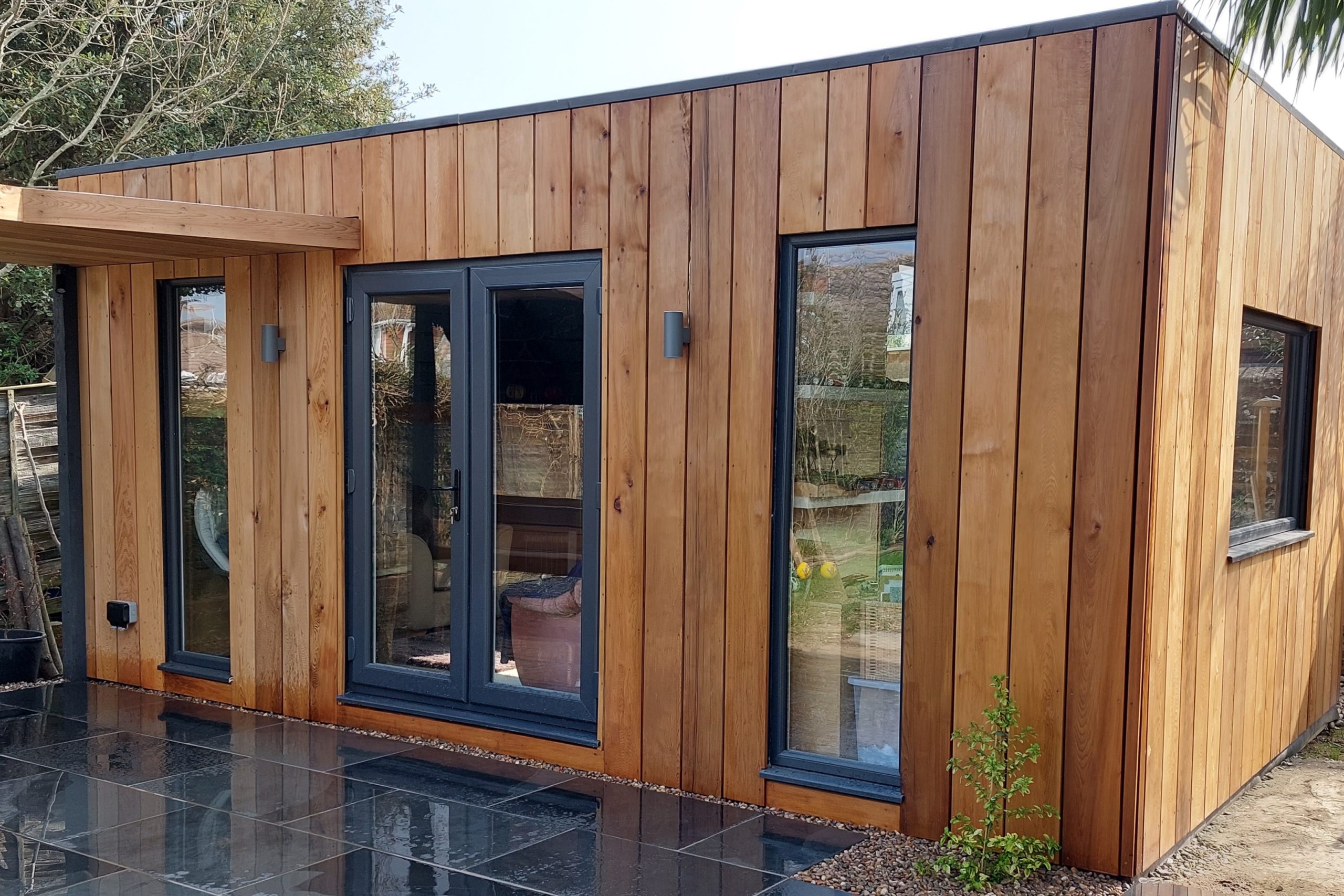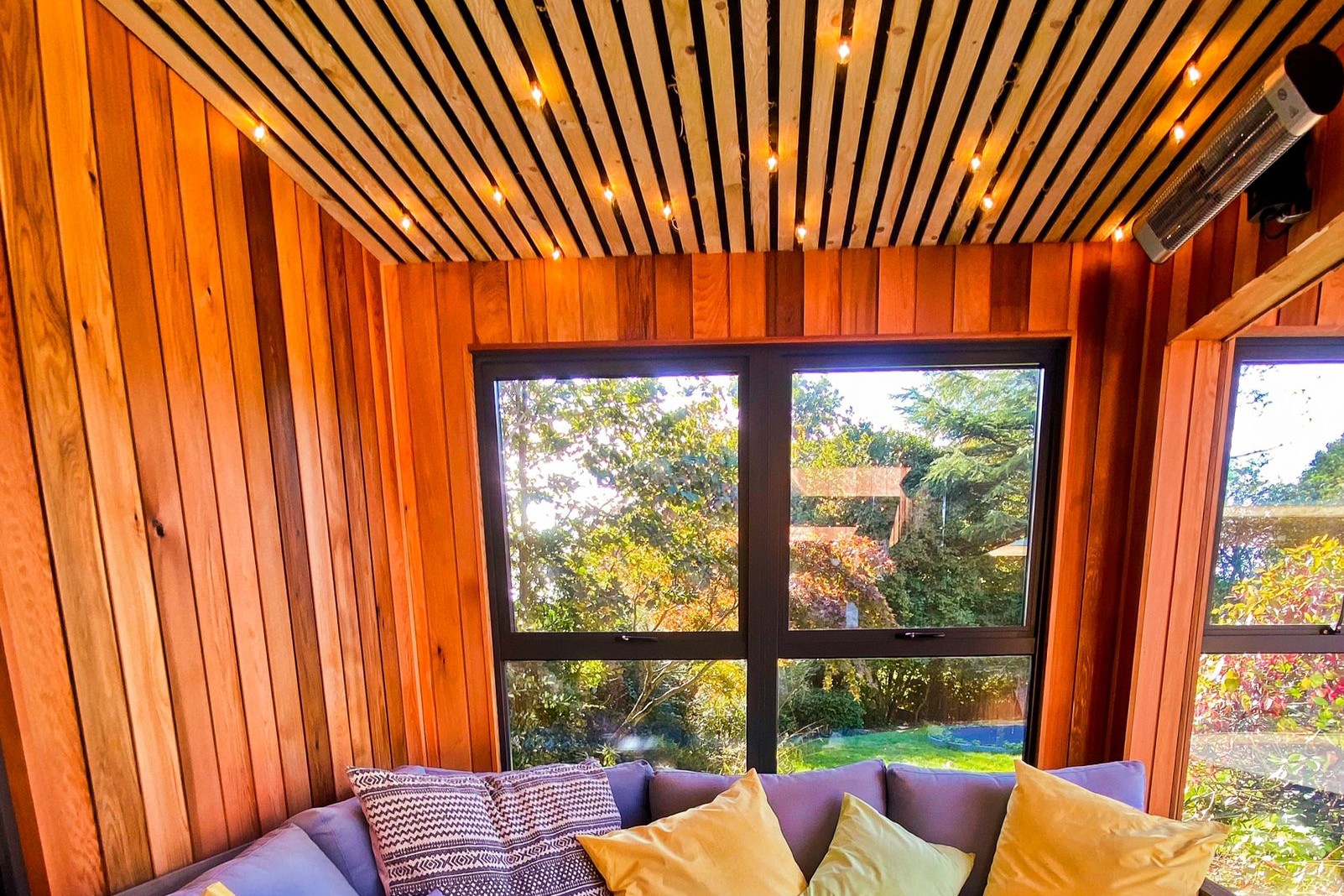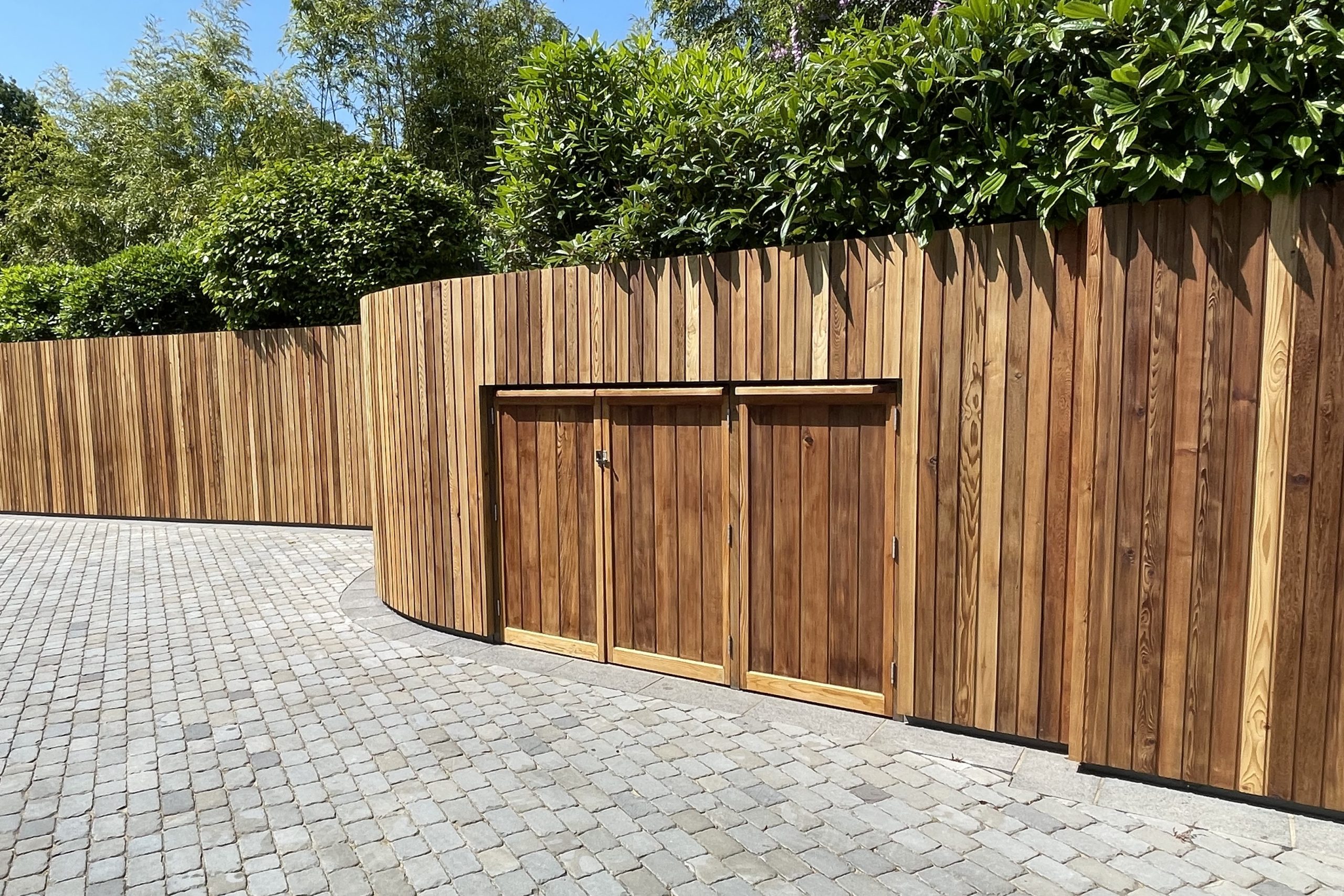European Larch - Batten - PAR - 70 x 18mm
Product Code: C-000508£41.19 per m² ex. vat
Lengths available:
- 4000mm
- 5000mm
Enter your cladding area for estimate price:
Area
Price (Based on 4000mm)
Contact our experts for a price including delivery and recommended fixings:

We believe in the power of premium materials to transform spaces, inside and out.
We strive to deliver your products as promptly as possible, so you can start enjoying them right away.
Our customers are at the heart of everything we do. That’s why we are proud to showcase our Trustpilot reviews.
Shopping with us is straightforward and stress-free. Our dedicated team is just a call or email away if you need assistance.
10mm spacing between battens
Our efficient delivery system ensures your softwood cladding reaches you in excellent condition and on time. Delivery charges are calculated based on your postcode, the size, and the weight of your order. Whether we use external couriers or our own fleet of vehicles, we take great care in packaging and handling. For more information, please see our Delivery Terms & Conditions.
Guide to Installing Timber Batten Cladding
Timber batten cladding is a stylish and versatile way to add texture and warmth to any façade or interior wall. Proper installation ensures durability, aesthetic appeal, and compliance with building standards. Follow this step-by-step guide:
1. Preparation
- Check the Surface: Ensure the wall or frame is straight, dry, and structurally sound.
- Moisture Barrier: Install a breathable membrane or vapour barrier to protect against moisture ingress.
- Battens & Spacing: Decide on batten size and spacing (commonly 10–30 mm gaps). Mark layout lines for consistency.
2. Tools & Materials
- Timber battens (pre-treated for durability)
- Stainless steel or galvanized screws/nails
- Spirit level and chalk line
- Drill and driver
- Spacers for uniform gaps
- Protective finish (oil, stain, or sealant)
3. Installation Steps
Step 1: Fix Support Battens
- Attach vertical or horizontal support battens to the wall using corrosion-resistant fixings.
- Ensure they are level and spaced according to your design.
Step 2: Position Timber Battens
- Start from one corner or edge.
- Use spacers to maintain consistent gaps between battens.
- Check alignment regularly with a spirit level.
Step 3: Secure Battens
- Fix battens through the thickest section using screws or nails.
- Pre-drill holes to prevent splitting.
- For concealed fixing, use clips or rear-mounted brackets.
Step 4: Expansion Gaps
- Leave a 5–10 mm gap at ends and joints for timber movement.
- Avoid tight joints to prevent warping.
4. Finishing
- Apply protective coating (UV-resistant oil or stain) to enhance longevity.
- Reapply finish periodically as per manufacturer’s recommendations.
5. Maintenance Tips
- Inspect annually for loose fixings or weathering.
- Clean with mild soap and water; avoid harsh chemicals.
- Recoat timber every 12–24 months for optimal protection.
Safety & Compliance
- Follow local building codes and fire safety regulations.
- Use treated timber for external applications to prevent rot and insect damage.
Overview: European Larch Decking and Cladding
European larch is prized for its natural durability and beautiful warm colouration, combining the strength you need with the aesthetic appeal you desire. Popular for both decking and cladding applications, larch offers excellent value and performance. With proper maintenance, larch can last for decades, making it an excellent investment for your outdoor and exterior projects.
Natural Characteristics
European larch is moderately durable with good decay resistance. This hygroscopic timber naturally interacts with its environment, making it well-suited for exterior applications:
- High resin content provides natural protection against the elements
- Hygroscopic nature means timber absorbs moisture from air on rainy days
- Releases moisture when exposed to sun and wind
- Natural expansion and contraction during moisture cycles
- Characterful cracks and splits develop, adding authentic natural appearance
- Dense hardwood-like properties despite being a softwood
- Good structural strength for its weight
Weathering and Colour Changes
Understand how larch naturally ages over time:
- Without treatment, larch weathers from golden-brown tones to attractive silvery-grey patina
- UV rays and moisture exposure cause natural colour change over 6-18 months
- Weathered grey patina is considered distinguished and timeless by many
- North-facing surfaces and shaded areas may weather more slowly
- Initial colour variation between boards will gradually even out
- Natural ageing process does not affect structural integrity
- Many homeowners embrace the natural weathering aesthetic
Protective Treatments
If you prefer to preserve the original warm colouration of your larch, protective treatments are highly recommended:
UV Protection Oils
- High-quality semi-transparent stains and oils provide UV and water protection
- Penetrate wood to prevent growth of wood-decaying fungi
- Maintain warm golden-brown tones and prevent silver-grey weathering
- Reapply every 1-3 years depending on exposure
Clear Waterproofing
- Maintain natural appearance while offering moisture protection
- Allow wood to weather naturally while slowing the process
- Protect against water penetration and staining
- Reapply every 1-2 years
Pigmented Finishes
- Semi-transparent stains enhance natural beauty and grain
- Provide robust protection against UV rays and moisture
- Available in natural larch tones or custom colours
- Longer protection intervals of 3-5 years possible
Initial Treatment (Before or Immediately After Installation)
For best results, treat larch boards before or immediately after installation:
- Apply treatment to all surfaces including ends, edges, and backs
- Pay special attention to cut ends—seal immediately to prevent moisture ingress
- Choose treatments suitable for your specific application (decking or cladding)
- Allow adequate drying time before exposing to weather or foot traffic
- Treating before installation provides optimal protection
- High resin content means surface preparation is important for treatment adhesion
Regular Maintenance Schedule
Keep your European larch in prime condition with routine care:
Annual Inspection
- Check for debris accumulation between boards
- Inspect for signs of damage, splitting, or wear
- Ensure proper drainage and ventilation
- Look for mould, algae, or moss growth
- Examine fixings for corrosion or loosening
- Check for resin bleed in warm weather
Periodic Cleaning
- Clean surfaces 1-2 times per year with soft brush and mild detergent solution
- Remove dirt, algae, moss, and organic debris
- Rinse thoroughly with clean water
- Avoid pressure washers which can damage wood fibres
- Allow to dry completely before applying treatments
- Remove any surface resin with appropriate cleaner if necessary
Treatment Reapplication
- Reapply stains and sealants every 1-3 years for high-exposure areas
- Reapply every 3-5 years for protected or low-exposure areas
- Clean surface before reapplication
- Apply in dry, temperate conditions (avoid direct hot sun)
- Follow manufacturer’s coverage rates and application instructions
- Ensure good penetration given larch’s resinous nature
Ventilation Requirements
Proper airflow is critical for longevity and prevents moisture-related issues:
- Ensure adequate ventilation beneath decking to prevent moisture accumulation
- Maintain minimum 150mm clearance from ground to underside of deck boards
- Install cladding with ventilated cavity using battens or counter battens
- Avoid trapping moisture behind boards
- Use breather membranes that allow vapour transmission
- Keep vegetation trimmed back from timber surfaces
- Good airflow helps manage larch’s hygroscopic moisture cycling
Common Issues and Solutions
Address minor problems before they become major:
Surface Mould or Algae
- Clean with proprietary timber cleaner or diluted detergent solution
- Scrub gently with soft brush
- Rinse thoroughly
- Allow to dry and reapply protective treatment
Greying or Fading
- Clean surface thoroughly
- Lightly sand if necessary to remove weathered layer
- Apply UV-protective oil or stain to restore colour
Splitting or Checking
- Minor splits and checks are natural characteristics that add character
- Do not affect structural integrity
- Seal larger splits with flexible wood filler if desired
- Ensure proper treatment to minimize further movement
- Natural result of moisture cycling in hygroscopic timber
Water Staining
- Usually temporary and will blend as timber weathers
- Clean affected areas and reapply water repellent
- Ensure proper drainage to prevent standing water
Resin Bleed
- Natural occurrence in warm weather, especially when new
- Wipe away excess resin with white spirit or turpentine
- Reduces over time as timber ages
- Not a defect—natural characteristic of resinous timber
Longevity and Performance
With proper installation, treatment, and maintenance, European larch provides excellent service life:
- Decking applications: 50+ years with regular maintenance
- Cladding applications: 50+ years or longer with proper care
- Naturally durable heartwood provides good resistance
- Regular maintenance significantly extends lifespan
- One of the most cost-effective and sustainable choices for exterior timber
- Excellent strength-to-weight ratio for structural applications
Professional Maintenance Tips
Optimal maintenance timing is during spring and autumn when weather is temperate. Avoid applying treatments in direct sunlight, extreme heat, or when rain is forecast within 24 hours. Keep records of treatment dates and products used for reference. Consider professional cleaning and refinishing services for large or complex installations. Be aware that larch’s resin content may require specialized cleaning before retreatment.
Need Help?
European larch offers the perfect balance of natural beauty, durability, and value—providing you with an outdoor space or exterior finish to enjoy for generations to come. For maintenance product recommendations, treatment schedules, or specific care advice, our team is always on hand to assist. Contact us for tailored support to suit your project.






